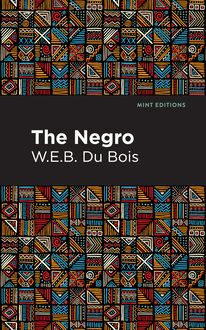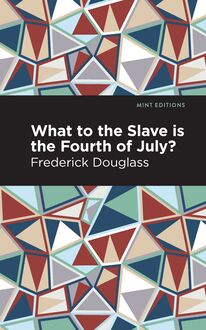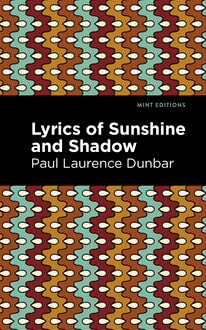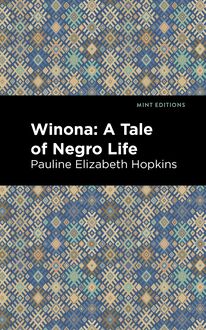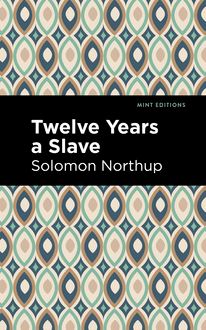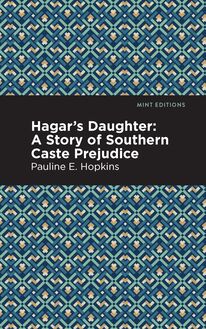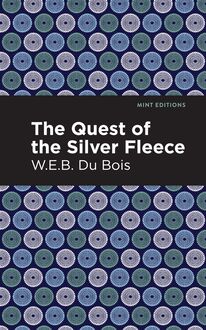-
 Univers
Univers
-
 Ebooks
Ebooks
-
 Livres audio
Livres audio
-
 Presse
Presse
-
 Podcasts
Podcasts
-
 BD
BD
-
 Documents
Documents
-
- Cours
- Révisions
- Ressources pédagogiques
- Sciences de l’éducation
- Manuels scolaires
- Langues
- Travaux de classe
- Annales de BEP
- Etudes supérieures
- Maternelle et primaire
- Fiches de lecture
- Orientation scolaire
- Méthodologie
- Corrigés de devoir
- Annales d’examens et concours
- Annales du bac
- Annales du brevet
- Rapports de stage
La lecture à portée de main
Vous pourrez modifier la taille du texte de cet ouvrage
Découvre YouScribe en t'inscrivant gratuitement
Je m'inscrisDécouvre YouScribe en t'inscrivant gratuitement
Je m'inscrisEn savoir plus
Vous pourrez modifier la taille du texte de cet ouvrage
En savoir plus

Description
Minnie’s Sacrifice (1869) is a novel by Frances Ellen Watkins Harper. Originally serialized in the Christian Recorder, Minnie’s Sacrifice is a rediscovered work of fiction from one of nineteenth century America’s most prominent black writers and activists. The novel, which addresses such themes as miscegenation, passing, and the institutionalized rape of enslaved women, is a vastly underappreciated work that repurposes the story of Moses to tell a tale with a powerful political message.
On a plantation in the American South, a slave named Miriam mourns the untimely death of her only daughter. Agnes, who succumbed while giving birth to a baby boy in their cabin at the edge of Mr. Le Croix’s property, left her son in her mother’s care. Visiting Miriam’s cabin later that day, Camilla, the master’s daughter, discovers a blond-haired, blue-eyed boy. Bringing this to the attention of her father, Camilla proposes that the boy be sent away from the plantation to be brought up as white. Unable to accept that the boy should be considered a slave, Camilla begs her father to take the child north, all the while failing to connect her own father to the boy’s birth. After brief contemplation, he nervously consents to her plan, but for all her cunning and bravery, Camilla is entirely unprepared for what her merciful endeavor will reveal. Minnie’s Sacrifice, by an author who inspired Zora Neale Hurston and Ida B. Wells, is a groundbreaking work of African American fiction and a definitive masterpiece from Frances Ellen Watkins Harper, a pioneer in her craft.
With a beautifully designed cover and professionally typeset manuscript, this edition of Frances Ellen Watkins Harper’s Minnie’s Sacrifice is a classic of African American literature reimagined for modern readers.
Sujets
Informations
| Publié par | Mint Editions |
| Date de parution | 26 janvier 2021 |
| Nombre de lectures | 0 |
| EAN13 | 9781513276731 |
| Langue | English |
| Poids de l'ouvrage | 3 Mo |
Informations légales : prix de location à la page 0,0350€. Cette information est donnée uniquement à titre indicatif conformément à la législation en vigueur.
Extrait
Minnie’s Sacrifice
Frances Ellen Watkins Harper
Minnie’s Sacrifice was first published in 1869.
This edition published by Mint Editions 2021.
ISBN 9781513271736 | E-ISBN 9781513276731
Published by Mint Editions®
minteditionbooks.com
Publishing Director: Jennifer Newens
Design & Production: Rachel Lopez Metzger
Project Manager: Micaela Clark
Typesetting: Westchester Publishing Services
C ONTENTS I II III IV V VI VII VIII IX X XI XII XIII XIV XV XVI XVII XVIII XIX XX C ONCLUSION
I
M iriam sat in her lowly cabin, painfully rocking her body to and fro; for a great sorrow had fallen upon her life. She had been the mother of three children, two had died in their infancy, and now her last, her loved and only child was gone, but not like the rest, who had passed away almost as soon as their little feet had touched the threshold of existence. She had been entangled in the mazes of sin and sorrow; and her sun had gone down in darkness. It was the old story. Agnes, fair, young and beautiful, had been a slave, with no power to protect herself from the highest insults that brutality could offer to innocence. Bound hand and foot by that system, which has since gone down in wrath, and blood, and tears, she had fallen a victim to the wiles and power of her master; and the result was the introduction of a child of shame into a world of sin and suffering; for herself an early grave; and for her mother a desolate and breaking heart.
While Miriam was sitting down hopelessly beneath the shadow of her mighty grief, gazing ever and anon on the pale dead face, which seemed to bear in its sad but gentle expression, an appeal from earth to heaven, some of the slaves would hurry in, and looking upon the fair young face, would drop a word of pity for the weeping mother, and then hurry on to their appointed tasks. All day long Miriam sat alone with her dead, except when these kindly interruptions broke upon the monotony of her sorrow.
In the afternoon, Camilla, the only daughter of her master, entered her cabin, and throwing her arms around her neck exclaimed, “Oh! Mammy, I am so sorry I didn’t know Agnes was dead. I’ve been on a visit to Mr. Le Grange’s plantation, and I’ve just got back this afternoon, and as soon as I heard that Agnes was dead I hurried to see you. I would not even wait for my dinner. Oh! how sweet she looks,” said Camilla, bending over the corpse, “just as natural as life. When did she die?”
“This morning, my poor, dear darling!” And another burst of anguish relieved the overcharged heart.
“Oh! Mammy, don’t cry, I am so sorry; but what is this?” said she, as the little bundle of flannel began to stir.
“That is poor Agnes’ baby.”
“Agnes’ baby? Why, I didn’t know that Agnes had a baby. Do let me see it?”
Tenderly the grandmother unfolded the wrappings, and presented the little stranger. He was a beautiful babe, whose golden hair, bright blue eyes and fair complexion showed no trace of the outcast blood in his veins.
“Oh, how beautiful!” said Camilla; “surely this can’t be Agnes’ baby. He is just as white as I am, and his eyes—what a beautiful blue—and his hair, why it is really lovely.”
“He is very pretty, Miss, but after all he is only a slave.”
A slave. She had heard that word before; but somehow, when applied to that fair child, it grated harshly on her ear; and she said, “Well, I think it is a shame for him to be a slave, when he is just as white as anybody. Now, Mammy,” said she, throwing off her hat, and looking soberly into the fire, “if I had my way, he should never be a slave.”
“And why can’t you have your way? I’m sure master humors you in everything.”
“I know that; Pa does everything I wish him to do; but I don’t know how I could manage about this. If his mother were living, I would beg Pa to set them both free, and send them North; but his mother is gone; and, Mammy, we couldn’t spare you. And besides, it is so cold in the North, you would freeze to death, and yet, I can’t bear the thought of his being a slave. I wonder,” said she, musing to herself, “I wonder if I couldn’t save him from being a slave. Now I have it,” she said, rising hastily, her face aglow with pleasurable excitement. “I was reading yesterday a beautiful story in the Bible about a wicked king, who wanted to kill all the little boys of a people who were enslaved in his land, and how his mother hid her child by the side of a river, and that the king’s daughter found him and saved his life. It was a fine story; and I read it till I cried. Now I mean to do something like that good princess. I am going to ask Pa, to let me take him to the house, and have a nurse for him, and bring him up like a white child, and never let him know that he is colored.”
Miriam shook her head doubtfully; and Camilla, looking disappointed, said, “Don’t you like my plan?”
“Laws, honey, it would be fustrate, but your Pa wouldn’t hear to it.”
“Yes, he would, Mammy, because I’ll tell him I’ve set my heart upon it, and won’t be satisfied if he don’t consent. I know if I set my heart upon it, he won’t refuse me, because he always said he hates to see me fret. Why, Mammy, he bought me two thousand dollars worth of jewelry when we were in New York, just because I took a fancy to a diamond set which I saw at Tiffany’s. Anyhow, I am going to ask him.” Eager and anxious to carry out her plan, Camilla left the cabin to find her father. He was seated in his library, reading Homer. He looked up, as her light step fell upon the threshold, and said playfully, “What is your wish, my princess? Tell me, if it is the half of my kingdom.”
Encouraged by his manner, she drew near, perched upon his knee, and said; “Now, you must keep your word, Pa. I have a request to make, but you must first promise me that you will grant it.”
“But I don’t know what it is. I can’t tell. You might want me to put my head in the fire.”
“Oh no, Pa, you know I don’t!”
“Well, you might wish me to run for Congress.”
“Oh no, Pa, I know that you hate politics.”
“Well, darling, what is your request?”
“No; tell me first that you will grant it. Now, don’t tease me, Pa; say yes, and I will tell you.”
“Well, yes; if it is anything in reason.”
“Well, it is in reason, let me tell you, Pa. To-day, after I came home, I asked Annette where was Agnes, and she told me she was dead. Oh I was so sorry; and so before I got my dinner I hastened to Mammy’s cabin, and found poor Mammy almost heart-broken, and Agnes lying dead, but looking just as natural as life.”
“She was dead, but had left one of the dearest little babies I ever saw. Why, Pa, he is just as white as we are; and I told Mammy so, but she said it didn’t matter; ‘he is a poor slave, just like the rest of us.’ Now, Pa, I don’t want Agnes’ baby to be a slave. Can’t you keep him from growing up a slave?”
“How am I to do that, my little Abolitionist?”
“No, Pa, I am not an Abolitionist. I heard some of them talk when I was in New York, and I think they are horrid creatures; but, Pa, this child is so white, nobody would ever know that he had one drop of Negro blood in his veins. Couldn’t we take him out of that cabin, and make all the servants promise that they would never breathe a word about his being colored, and let me bring him up as a white child?”
“Well,” said Mr. Le Croix, bursting into a hearty laugh, “that is a capital joke; my little dewdrop talk of bringing up a child! Why, darling, you would tire of him in a week.”
“Oh no, Pa, I wouldn’t! Just try me; if it is only for a week.”
“Why, Sunbeam, it is impossible. Who ever heard of such a thing as a Negro being palmed upon society as a white person?”
“Negro! Pa, he is just as white as you are, and his eyes are as blue as mine.”
“Still he belongs to the Negro race; and one drop of that blood in his veins curses all the rest. I would grant you anything in reason, but this is not to be thought of. Were I to do so I would immediately lose caste among all the planters in the neighborhood; I would be set down as an Abolitionist, and singled out for insult and injury. Ask me anything, Camilla, but that.”
“Oh, Pa, what do you care about social position? You never hunt, nor entertain company, nor take any part in politics. You shut yourself up in your library, year after year, and pore over your musty books, and hardly any one knows whether you are dead or alive. And I am sure that we could hide the secret of his birth, and pass him off as the orphan child of one of our friends, and that will be the truth; for Agnes was our friend; at least I know she was mine.”
“Well, I’ll see about it; now, get down, and let me finish reading this chapter.”
The next day Camilla went again to the cabin of Miriam; but the overseer had set her to a task in the field, and Agnes’ baby was left to the care of an aged woman who was too old to work in the fields, but not being entirely past service, she was appointed as one of the nurses for the babies and young children, while their mothers were working in the fields.
Camilla, feeling an unusual interest in the child, went to the overseer, and demanded that Miriam should be released from her tasks, and permitted to attend the child.
In vain the overseer plead the pressure for hands, and the busy season. Camilla said it did not matter, she wanted Miriam, and she would have her; and he, feeling that it was to his interest to please the little lady, had Miriam sent from the field to Camilla.
“Mammy, I want you to come to the house. I want you to come and be my Mammy. Agnes is dead; your husband is gone, and I want you to come and bring the baby to the house, and I am going to get him some beautiful dresses, and some lovely coral I saw in New Orleans, and I am going to dress him so handsomely, that I believe Pa will feel just as I do, and think it a shame that such a beautiful child should be a slave.”
Camilla went home, and told her father what she had done. And he, willing to compromise with her, readily consented; and in a
-
 Univers
Univers
-
 Ebooks
Ebooks
-
 Livres audio
Livres audio
-
 Presse
Presse
-
 Podcasts
Podcasts
-
 BD
BD
-
 Documents
Documents
-
Jeunesse
-
Littérature
-
Ressources professionnelles
-
Santé et bien-être
-
Savoirs
-
Education
-
Loisirs et hobbies
-
Art, musique et cinéma
-
Actualité et débat de société
-
Jeunesse
-
Littérature
-
Ressources professionnelles
-
Santé et bien-être
-
Savoirs
-
Education
-
Loisirs et hobbies
-
Art, musique et cinéma
-
Actualité et débat de société
-
Actualités
-
Lifestyle
-
Presse jeunesse
-
Presse professionnelle
-
Pratique
-
Presse sportive
-
Presse internationale
-
Culture & Médias
-
Action et Aventures
-
Science-fiction et Fantasy
-
Société
-
Jeunesse
-
Littérature
-
Ressources professionnelles
-
Santé et bien-être
-
Savoirs
-
Education
-
Loisirs et hobbies
-
Art, musique et cinéma
-
Actualité et débat de société
- Cours
- Révisions
- Ressources pédagogiques
- Sciences de l’éducation
- Manuels scolaires
- Langues
- Travaux de classe
- Annales de BEP
- Etudes supérieures
- Maternelle et primaire
- Fiches de lecture
- Orientation scolaire
- Méthodologie
- Corrigés de devoir
- Annales d’examens et concours
- Annales du bac
- Annales du brevet
- Rapports de stage
